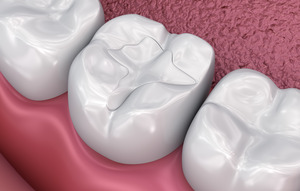
Dental fillings are a common restorative procedure used to repair teeth that have been damaged by decay, wear, or trauma. While fillings are highly effective in restoring the function and appearance of teeth, their longevity is not indefinite. The lifespan of a dental filling can vary based on several factors, including the type of material used, the location of the filling, and the patient’s oral hygiene habits. Understanding how long dental fillings typically last can help patients maintain their dental health and plan for future dental care.
Types of Filling Materials
The type of material used for a filling plays a significant role in determining how long it will last. Amalgam fillings, made from a mixture of metals including silver, mercury, and copper, are known for their durability and can last 10 to 15 years, or even longer with proper care. However, due to the toxic metals used in producing these fillings, they’re rarely used anymore.
Composite resin fillings, which are tooth-colored and more aesthetically pleasing. They’re also safer and tend to be more comfortable for patients. However, they typically have a slightly shorter lifespan than that, lasting for a bit over 10 years.
Location and Size of the Filling
The location and size of a dental filling also affect its longevity. Fillings on molars or premolars, which endure significant chewing forces, tend to wear out faster than those on front teeth, which experience less pressure. Larger fillings cover more of the tooth’s surface and are more susceptible to breaking down over time. Additionally, fillings that are placed at the gum line or in areas that are difficult to clean may be more prone to decay, leading to a shorter lifespan. Regular dental check-ups are crucial for monitoring these fillings and ensuring they remain in good condition.
Oral Hygiene and Maintenance
Good oral hygiene practices are essential for prolonging the life of dental fillings. Brushing twice a day with fluoride toothpaste, flossing daily, and using an antimicrobial mouthwash can help prevent decay around the filling. Avoiding hard or sticky foods that can dislodge or damage fillings is also important. Regular dental visits allow for early detection of any issues with fillings, such as cracks or wear, which can be addressed before they lead to more significant problems. Patients who grind their teeth (bruxism) should consider using a night guard to protect their fillings from excessive wear.
About Our Practice
At Lancaster Family Smiles, we work hard to give our patients a lifetime of beautiful smiles. Everyone here has a deep and abiding passion for the work of dentistry, and as a result, has accumulated the expertise necessary to make our work as effective as it can possibly be. Whether you’re looking to fix a few small imperfections or completely transform the look of your teeth, we can promise that the services you receive from us will be second-to-none!
If you have any questions about dental fillings, we can be reached at our website or by phone at (469) 729-7707.

 Se Habla Español
Se Habla Español
